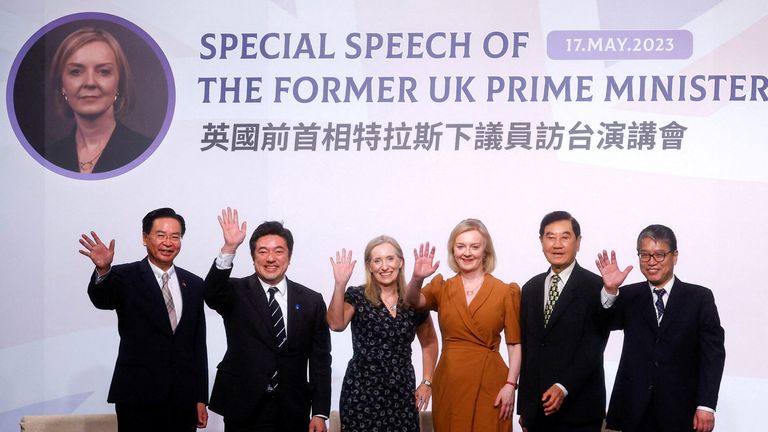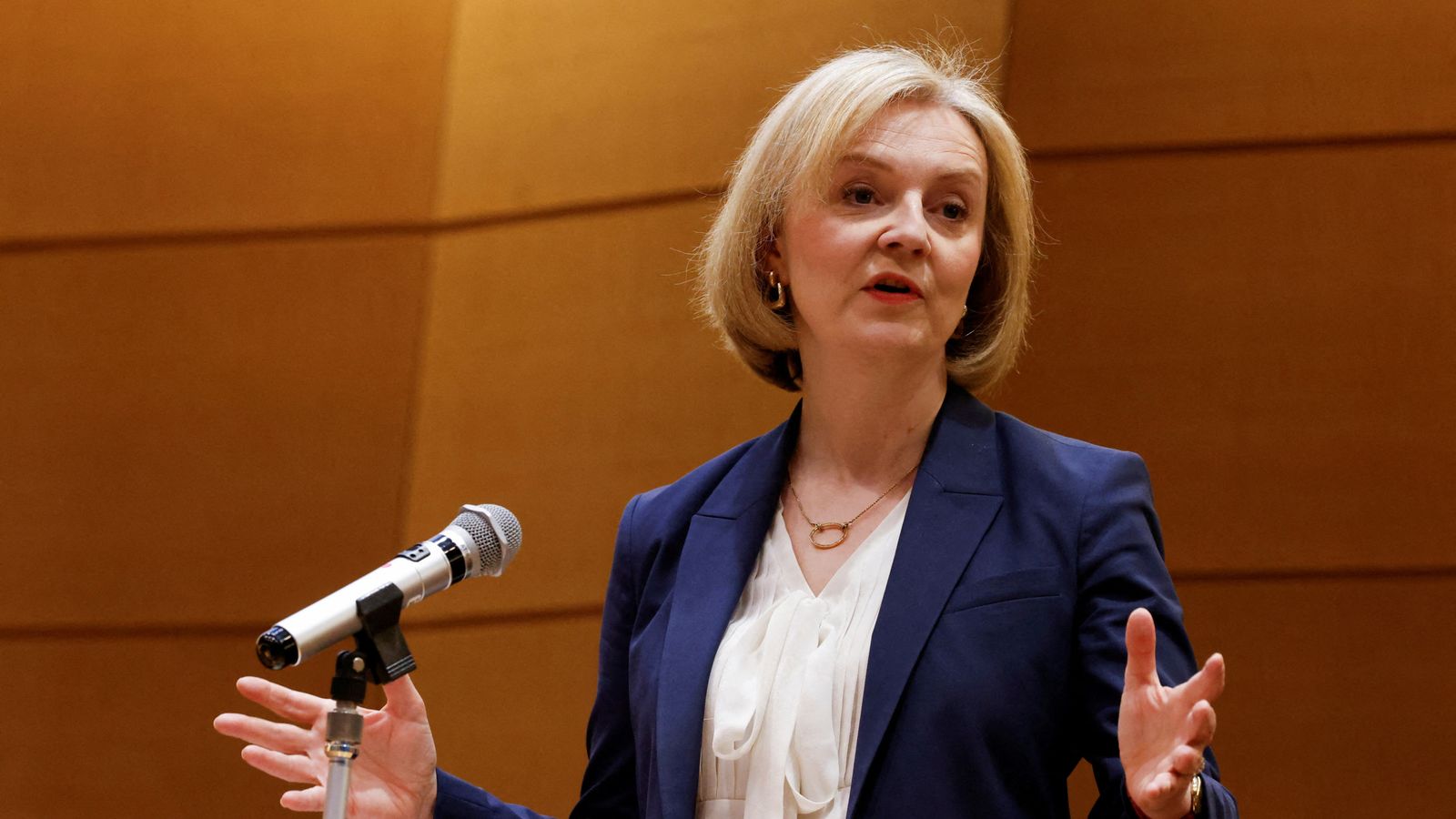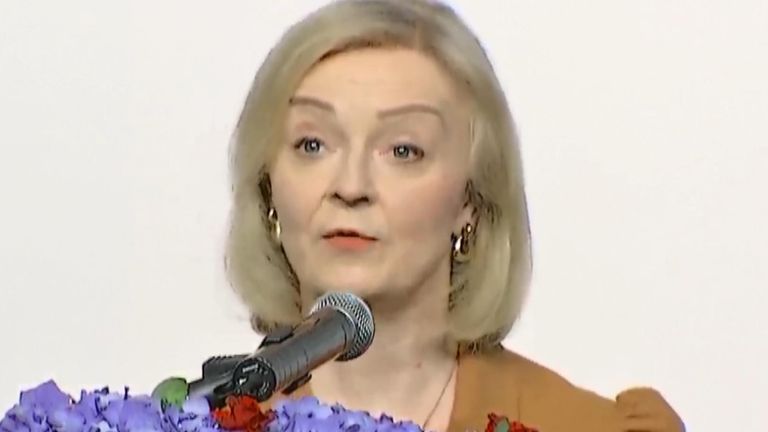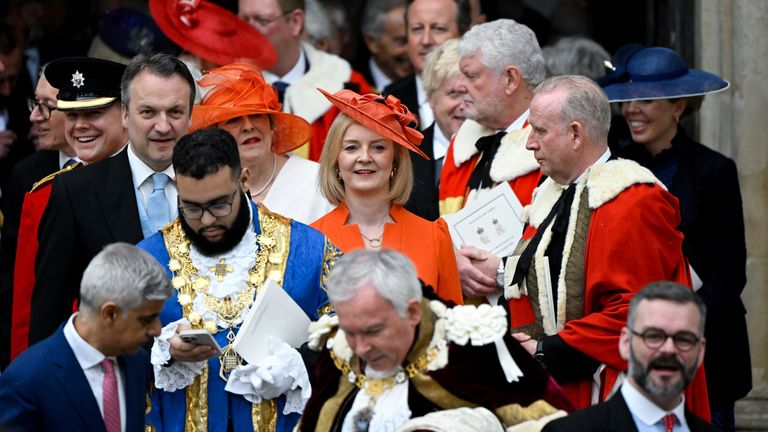
What is Liz Truss up to?
On paper, quite a lot.
In the seven months since she left Downing Street, there have been visits to Washington, Japan, Copenhagen and now – most controversially – Taiwan.
Those close to her say someone who was a minister for more than a decade should be expected to pursue their own interests.
They firmly deny the trips are about relevance or the rehabilitation of a frontline career and say her time as foreign secretary shows she has an astute instinct on the big international issues.
Others are not so generous.
“She isn’t rolling in the big bucks that former PMs normally do, so she’s trying to create for herself some sort of wise elder statesman role. But failing miserably,” said one former cabinet minister.
The focus for Ms Truss has been on foreign affairs and specifically China – with calls for a more robust approach to Beijing.
This is undoubtedly fertile territory in terms of winning favour in the Tory party.
‘A contrast to sensible Rishi’
Former leader Sir Iain Duncan Smith said Ms Truss was right to accept the invitation to visit Taiwan and that huge numbers of MPs want a stronger approach to China.
“The key issue is the argument, the debate, the issue, the problem… you have to think of China as a distinct threat,” he said.
Other China-hawks – from different wings of the party – are not so sure though.
Conservative MP and chair of the foreign affairs committee Alicia Kearns – someone who has made similar calls for a tougher approach to China – called the Taiwan trip “the worst type of Instagram diplomacy”.
So while there may be mileage in the message, many still struggle with the messenger.
“I spend a fair amount of time with colleagues, from all wings of the party, and I can honestly say she never comes up in conversation”, the former cabinet minister said.
Within government, officials are largely shrugging off Ms Truss’s visits.
One insider suggested her appearances could even be helpful as a “contrast to sensible Rishi”.
There seems to be little chance of her achieving any hardening in the official position either.
It was just three weeks ago that James Cleverly – someone appointed Foreign Secretary by Liz Truss – said isolating China would be “a betrayal of our national interest”.
That’s a very different stance to the one espoused by the former prime minister and something government sources highlight when asked about the helpfulness of her pronouncements.
On the international stage as well, observers are unconvinced by the impact of these interventions.
The Taiwan trip has generated some heat from Beijing, with the Foreign Affairs Ministry accusing Ms Truss of using the issue for “political self-interest”.
This is significantly milder than the response to US House Speaker Nancy Pelosi though – whose visit last year was met with ballistic missile launches and military exercises.
Ruffling feathers
One Asia expert said that “the near total absence of reaction” from Beijing showed that “most people in the region don’t think Liz Truss matters very much”.
It’s not likely that any of this will stop the former prime minister speaking her mind though, on domestic as well as international issues.
Allies say interventions on the economy and the growth agenda should be expected and point to her lengthy newspaper article from earlier this year as evidence that she is not afraid of fighting her corner on the issue.
Ms Truss will likely find much agreement within the Tory party on this topic too.
The difficulty will be whether MPs feel it politically helpful to link the tax cutting cause with someone who oversaw such economic chaos while in power.
The norms of Westminster dictate that Prime Ministerial tenures often leave no-go areas that refuse to fade.
Never one for tradition, Liz Truss seems as determined to ruffle feathers now as when she was in power – even if the political benefits of doing so appear close to negligible.













